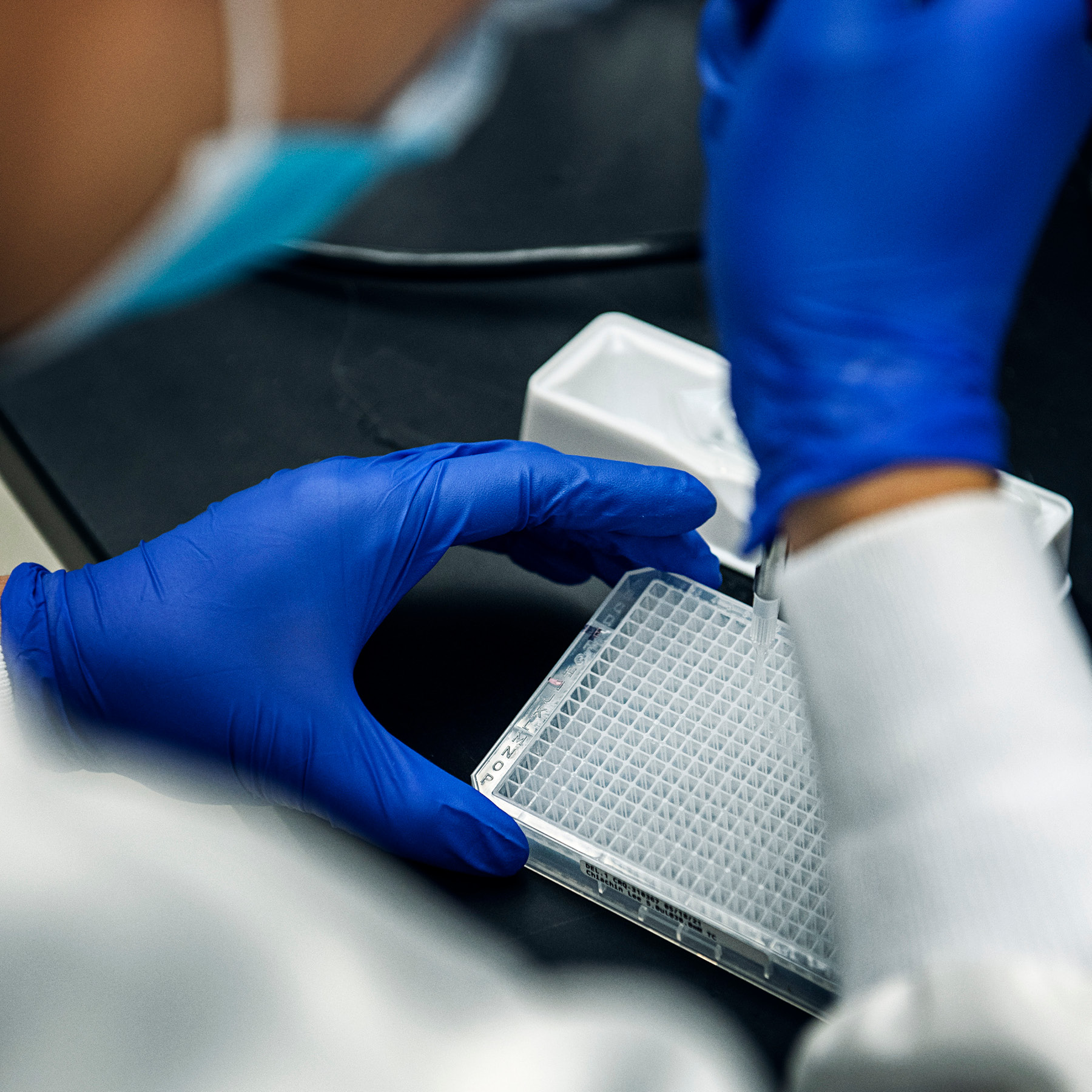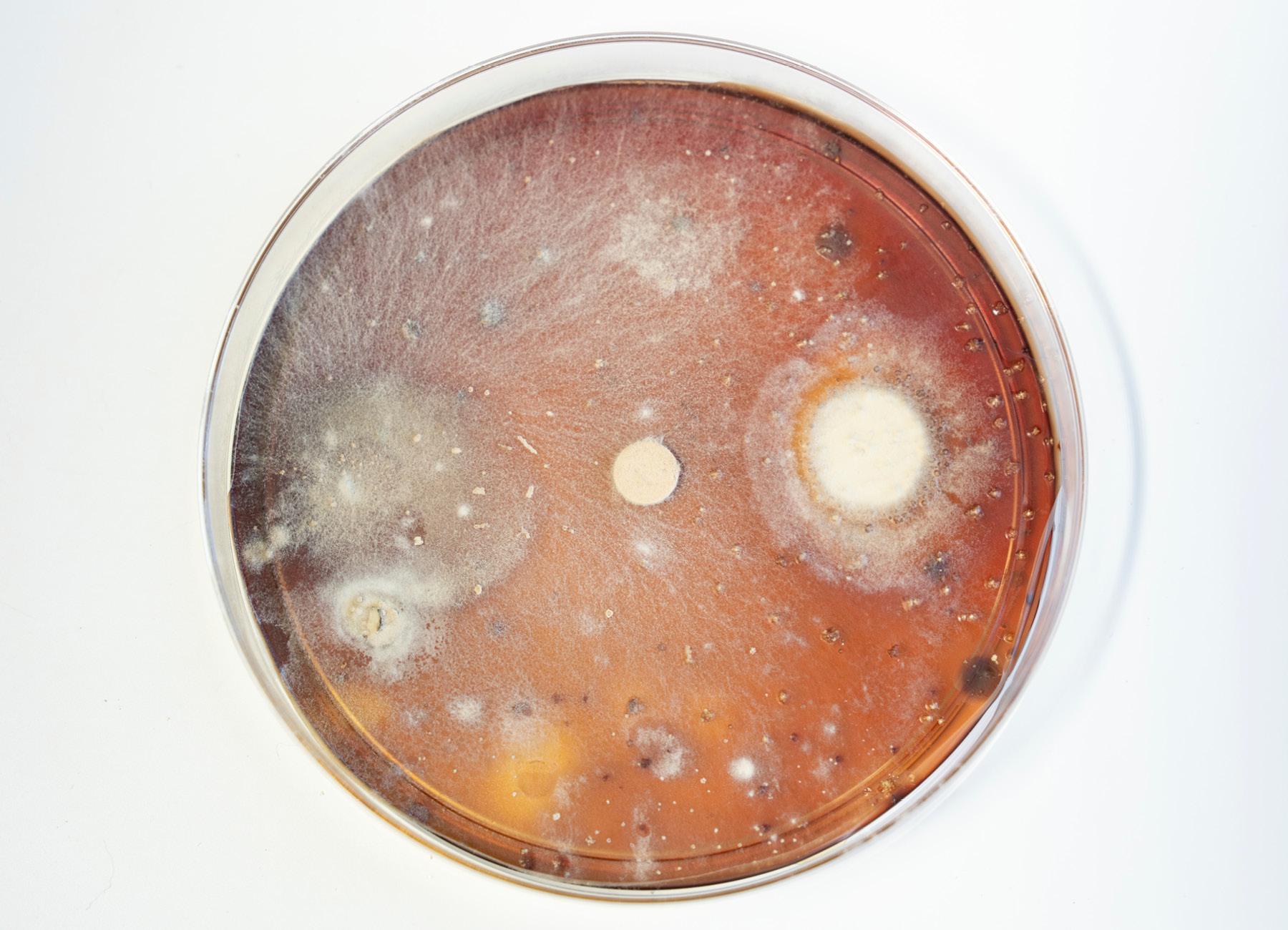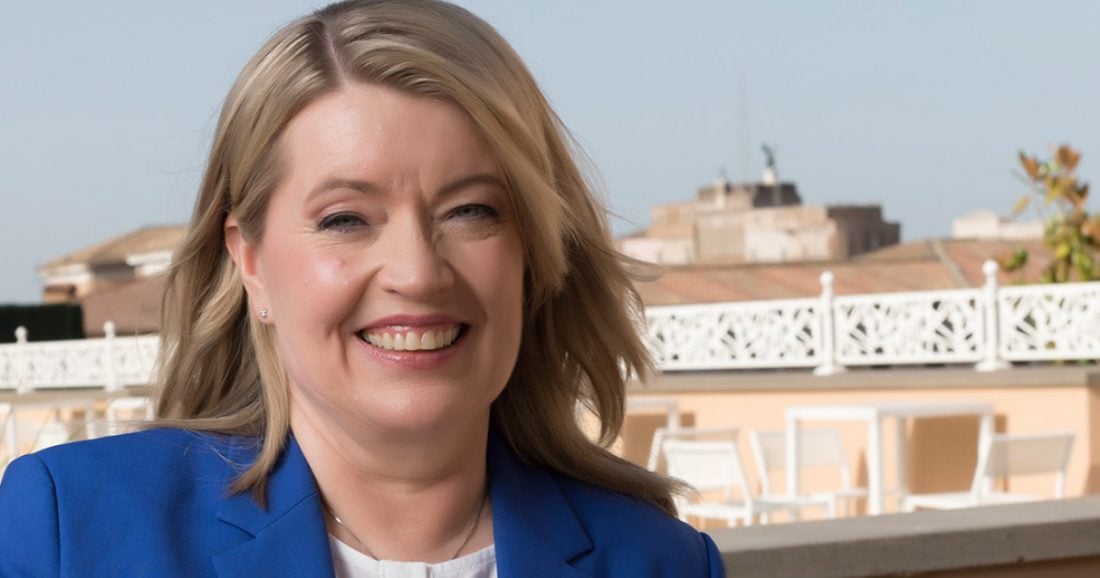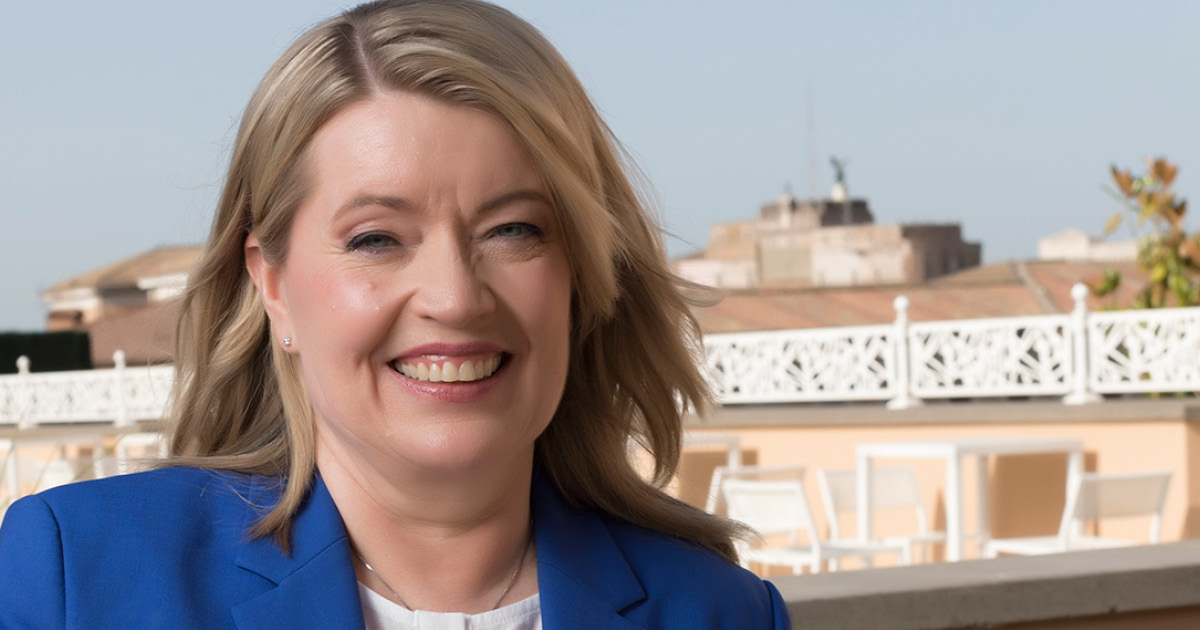With nearly 4.6 billion Pfizer-BioNTech COVID-19 vaccines shipped to 181 countries since December 2020, Pfizer has become a household name – giving the company confidence in its potential to combat diseases through its products and home in on its true purpose.
“The COVID-19 pandemic made Pfizer think that we could work with light speed, that we could accelerate the research and development process and that we could do things differently,” recalls Paivi Kerkola, Pfizer Italy’s Country President.

“Our purpose is breakthroughs that change patients’ lives.”
“We still have so much to do in this world. What is the foundation underlying there? That you bring hope through new innovations. Our purpose is breakthroughs that change patients’ lives,” she says.
From mRNA technology for vaccines to a new generation of antibiotics that can contribute to counter antimicrobial resistance and antibody-drug conjugates (an advanced therapy that will improve the quality of life of patients) against cancer in the pipeline, Pfizer is keen to make its mark again. It has over 10 product launches planned for the coming years.
Rethinking Partnerships
Paving the way for those is an increased focus on customer experience and transforming how the company approaches marketing, underpinned by a global strategic partnership with CoLab, brought to life by the collective power of Publicis Groupe and Interpublic Group (IPG). This has been possible through the hiring of more data analysts, with the goal of elevating both how the company uses data and how it targets customers through an omnichannel approach.
It’s something consumer brands have been doing for years, but B2B and pharmaceutical brands are still getting to grips with this approach. However, making the most of such partnerships will be crucial for future success, Kerkola believes.
In collaboration with
CoLab

“In the old days, we had advertising agencies, but they’re not just advertising agencies anymore,” she acknowledges. “In the past it used to be several agencies, now it’s going to be one main agency. The elements which will add to the partnership are really the trust, common goals and exposing yourself to their ideas. They know some things better than we do.”
Cool in a Crisis
Kerkola explains that a core goal is also making Pfizer Italy more digitally savvy. When she initially came into the role as Country Manager in February 2020, just one month before the world shut down, she ran an 800-strong commercial workforce remotely from her studio apartment in her native Finland, until she could relocate to Rome in September that year. Even after that, she continued to work fully-remotely.
In a company and country that was accustomed to face-to-face communication, this marked the “strangest leadership experience” of Kerkola’s life.
“We have 350 people in the field, meeting customers, who had never worked remotely and had never made virtual calls and they changed their way of interacting overnight. We had a crisis management team to keep it all together. Our two manufacturing sites in Italy continued working throughout the pandemic every day delivering the medicines they produce globally,” she recalls.

“Our science did win. We became the epicenter of the world.”
“I had to rely a lot on the local people because in a crisis, in a global pandemic, which none of us had seen before, what do you do when you are 3,000 kilometers away, figuring out who you can trust? How do you work together, how do you delegate?” she says.
For Kerkola personally, navigating this challenging period boiled down to not being afraid to ask for help, a willingness to learn and stamina to keep up with the changing situation.
“It was a different country, different culture, different language, different stakeholders. Then our science did win. We became the epicenter of the world. We were the most sighted company in the news everywhere,” Kerkola says.
“With our COVID-19 vaccine, our awareness here in Italy among normal citizens went from 30 percent to 80 percent. But it was like a roller coaster. One day you were the hero with the vaccine. The next day you were the people who couldn’t deliver,” she adds.
Making the Impossible Possible
But the quantum leap the pandemic pushed upon companies in terms of adopting digital tools has ultimately been helpful, Kerkola appreciates. For example, company town hall meetings of up to 2,500 people, which had always been held in person, are now conducted virtually.
It is also helping its customers with their own digital transitions, in a country where its 20 regions are disparately run, with some being more advanced than others in terms of electronic health records. But, as Kerkola acknowledges, “What we thought was not possible is now possible.”
When it comes to the use of AI, however, the company is treading carefully, despite the big part the technology played in rolling out a vaccine in nine months rather than the five or more years it would historically have taken.
Due to the need to protect intellectual property, the company does not use the standard version of ChatGPT, for example, as what is inputted ends up in the public domain. Pfizer, then, has developed a ring-fenced ChatGPT for its own confidential use.
Kerkola is also intent on increasing the emphasis on diversifying the experience and skills of the company’s talent, in an industry people have typically joined to build a long-term career.

“What we thought was not possible is now possible.”
“Here, people are used to having very long careers and they stay exceptionally long in the same role. For our benefit, for our business, and so people can thrive, we need to get more rotation for them,” she says.
“So we have put in place our iTalent program, encouraging people to put themselves forward for different experiences, and we’ve been making a lot of progress on that front.”
The experience of the past four years has also put Kerkola in the spotlight like never before. In 2021, Fortune named her Business Person of the Year in Italy’s pharmaceutical industry. Then in 2022, Forbes and Fiera Milano awarded her the title Pharma CEO of the Year for Italy. And in 2023, she was named a finalist for the WeQual Awards for senior executive women in The Americas — President category.
Despite the recognition, Kerkola remains humble about the road ahead. “Rome was not built in a day,” she says. “So transformation is a long-term journey. It does take time, effort, but the culture here in Italy is such that people are willing to give it a try, and that’s fantastic.”




